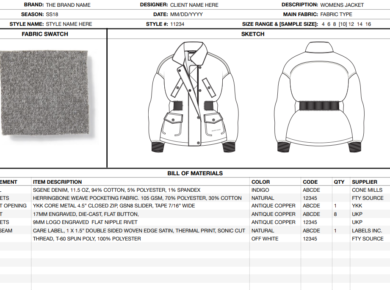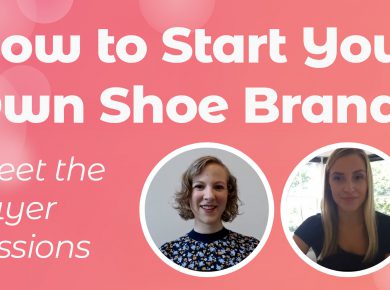As a sourcing platform, committed to both buyers and suppliers, Sourcing Playground is committed to assisting all members in achieving the best possible business deal. This is what sets us apart from most others, and we deeply believe in both our buyers and suppliers having the best possible experience using our platform.
As someone heavily involved in the offshore manufacturing / buying industry, the vast, vast majority of my clients are buyers.
In my close to twenty years in this industry, I can only think of a handful of times a supplier, whether a factory or a trading company, has asked me for advice on how attract buyers. I personally find this a bit strange, as most suppliers out there market themselves in the exact same way.
Most suppliers either market themselves in a very passive way (Alibaba, Made In China, Global Sources etc), or actively spam potential buyers with a generic email that they are too lazy to put the potential buyers name on. Some spend thousands of Dollars on trade shows, and they are lumped together with every other seller of the same product. I do not even attend these shows anymore, and from what I have heard, this is very common. The number of buyers attending trade shows is on the decline.
In no way, does any of the above distinguish a supplier from the other ten thousand that market themselves in the exact same way.
Personally, if I receive an email that does not have my name on it, I simply mark as spam, without even reading. I am sure plenty of others do the exact same. The same applies to emails I am “bcc’d” on. To me these types of mails say one thing. “Lazy”.
So, from the above, how does a supplier differentiate themselves from the thousands doing the exact same thing?
Or as the title of this article suggests, how to make the best first impression as a supplier?
According to research, when making a new contact, we decide if we like someone, extremely quickly. These are known as Snap impressions, and we are hardwired to make them (Snap. Making the most of first impressions, body language & charisma. Patti Wood, 2012).
My suggestions are below. I am sure many of you have other suggestions, and this article is not all inclusive. However, based on my personal experience, these are non-negotiable.
If you are “cold calling” a potential buyer
- Put some thought into your email. Spend a bit of time investigating what the potential buyer does. Check their website. Use this information in your email, and explain to them what benefits you can offer them, based on their specific company. Obviously, this requires some time and thought.
- Ensure the email is grammatically correct. Never use colloquial English, or any informal words. Think about what you write. For the Chinese, their family name is before their first / given name. For Westerners, this is the opposite. If you are contacting me (Michael Eisman), never start with “Dear Eisman”. This is a common mistake by Chinese suppliers. I have also noticed this type of mistake with many Indian suppliers. They will call me “Mr Michael”. This is also obviously incorrect. Although these points may seem trivial to some, they are not.
- Never send a generic email, or one not using the recipient’s name.
- Never BCC the recipients. It is obvious that the mail has been sent to every person in your address book.
- If you want to connect via LinkedIn or a similar platform, send a personalised connection request. Do not use the automatic connection request. Even more important on this type of platform, is to not message someone with a sales pitch the minute they accept your connection request. Wait a few weeks, and ensure you send a personalised message. This is part of the unofficial LinkedIn etiquette.
- A lot of buyers will give their exact requirements when looking for suppliers on the various B2B platforms. If you cannot meet their requirements, do not contact them. Recently, I was looking for suppliers in a very specific geographic location. I made this extremely clear on four B2B platforms. As expected, I got a lot of mails from suppliers who did not meet this requirement. On some of these platforms, a response rate contributes to the buyer’s reputation score on the platform. So, if I want to maintain my status as a reputable buyer, I need to respond to these suppliers. I always do this in a civil way, even though it is a total waste of my time (they cannot meet my requirements). Then there is usually a chain of backwards and forwards correspondence, as to why I should give them a chance, even though they cannot meet my requirements. Another colossal waste of time. Some get the message, while some push and push. Eventually I need to mark them as spam, or end up being obnoxious and rude. Not something I take pride in.
- Lucky for the English-speaking world, English is the international business language. As a supplier, do not try to save money on a staff member, that deals with foreign buyers, who has inferior English skills, or on someone with good English skills, but not good industry skills. This is extremely, extremely common practice. I guarantee you it will cost you a fortune in the long run.
- Never ever, make an unverifiable or false claim. You will get caught out on it eventually by a buyer. If you are not one of the leading exporters in country X, do not put this in your mail. Every second supplier does this. What are you going to do if the buyer asks for verification? Remember, a lot of buyers in an industry talk to each other, are members of industry specific forums, friends etc. They will tell their associates about this “leading exporter” who could not verify their claim.
What if a potential buyer contacts you?
- Respond to the mail as soon as possible. To me, anything more than 24 hours is too long. Even if you cannot deal with the enquiry at this time, acknowledge the email, and tell the buyer the reason you cannot deal with the enquiry immediately. Give the buyer a time frame that you will get back to them. For example, “within 48 hours”. Crucially important here, is that “within 48 hours” means exactly that. Not 49 hours, not 48 and a half hours. This might seem trivial, but it immediately shows the buyer you can meet a commitment. If you cannot meet this type of simple commitment, the buyer is going to doubt your ability to meet the really important commitments.
- As before, ensure your mail is grammatically correct. Never use colloquial English, or any informal words. Think about what you write, etc. I have already covered this in the “cold calling” section.
- Remember, the longer you take to respond to a buyer’s enquiry, the higher the chance the buyer has found another supplier.
- If a buyer has specific requirements, ensure you can meet them. This is especially important if these requirements are in the first mail/enquiry the buyer sends you. These are usually non-negotiable requirements. That is why the buyer is bringing them up right at the beginning. Do not ignore them, in the hope that you can negotiate them at a later stage. The reason the buyer is bringing these requirements up at the beginning, is that they do not want to waste time with a supplier who cannot meet these requirements Rather, explain to the buyer that you cannot meet a specific requirement immediately, and ask if they can reconsider. At the same time offer them something in return if they can make a concession.
These are my suggestions for a supplier to make a great first impression.
I hope these suggestions assist you in making your business as successful as possible.
Sourcing Playground wants all users to have the best possible experience using our platform and want to ensure every interaction between our buyers and suppliers is a positive one.
We hope your next venture is highly successful, along with all the others that follow.





